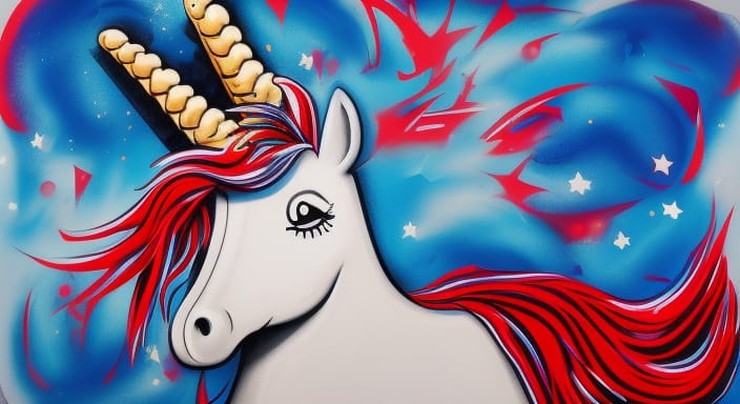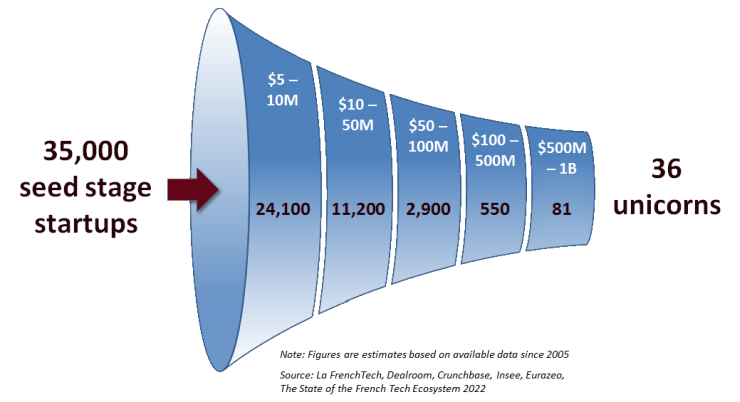
France shows no signs of throttling back its ambition to maintain one of the world’s most vibrant startup ecosystems. At the VivaTech conference in Paris last week, French president Emmanuel Macron announced an extension of TIBI, an initiative which successfully catalyzed $30 billion of funding into French startups over a three-year period by encouraging financial institution partners to re-orient $6 billion into VC funding. When financial institutions back a venture capital fund as an anchor LP, a virtuous multiplier effect occurs, enabling the VC fund to raise more capital from other LPs. The TIBI extension will mobilize an additional $7 billion to be invested into French VC funds from such government partner institutions, with an increased focus on early-stage venture funds in particular.
Whether it be by happy coincidence or direct inspiration, Japan Post Bank just announced today an identical level of funding in Japan for “turning startups into unicorns.” So this strikes me as an opportune time to examine how France produced its 36 unicorns.
36 Unicorns and counting
Through its dedicated efforts over nearly two decades, France has emerged as the leading ecosystem for startups in Europe, and arguably by some metrics third in the world behind the U.S. and China. Several years ago, the French government set out its aspiration to produce 25 tech unicorns by the year 2025. France has already shattered this goal, having already attained 36 unicorns.
The unicorn count is a metric that governments around the world like to use as a proxy to represent the vibrancy of their domestic startup ecosystems. I believe that France represents an interesting case study in a country’s unicorn production, so let’s analyze how France produced its 36 unicorns.

Three primary factors contribute to the successful cultivation of tech unicorns:
- Volume of seed stage startups
- Time
- Capital
As the above funnel illustrates, producing unicorns requires starting with an abundant pool of seed stage startups. At the risk of sounding glaringly obvious, most startups do not become unicorns. In France’s case, approximately 1,000 seed stage startups are necessary to produce one unicorn. Failing to foster a sufficiently large volume of seed stage startups fundamentally tightens the reins on unicorn growth.
Secondly, it takes time. Unicorns do not grow overnight. For France, the average time for a startup to grow from seed stage to unicorn stage has been 8 years.
Finally, it takes capital. Two decades ago, France was not a country with abundant risk capital interested in the VC asset class. Nor was it a country of startups. Sources of capital were conservative in mindset, and French society espoused a culture which encouraged young people to pursue careers of stability rather than entrepreneurship. This is where the French government stepped in with a policy change which catalyzed the flow of capital into startups, and over time, transformed the mindset of French society to embrace entrepreneurship: the Angel Tax program.
Over 17 years, the French Angel Tax program produced the bulk of the 35,000 seed stage startups necessary for the unicorn funnel. Subsequently, initiatives from the BPI (the French Public Investment Bank) and more recently the aforementioned TIBI, provided the additional boost to VC funds to enable them to fill their capital coffers in order to finance the continued growth of the startups as they progress through the unicorn funnel.
The trajectory of France’s startup ecosystem represents an admirable success story. Moreover, the French government is not resting on its laurels by curtailing its ambitions. I submit that France will remain an interesting model to watch.
